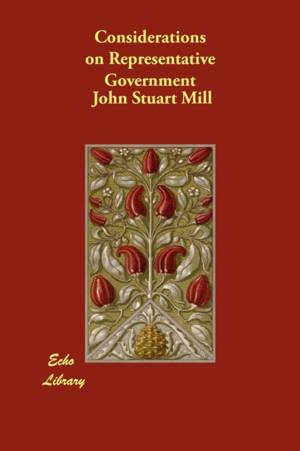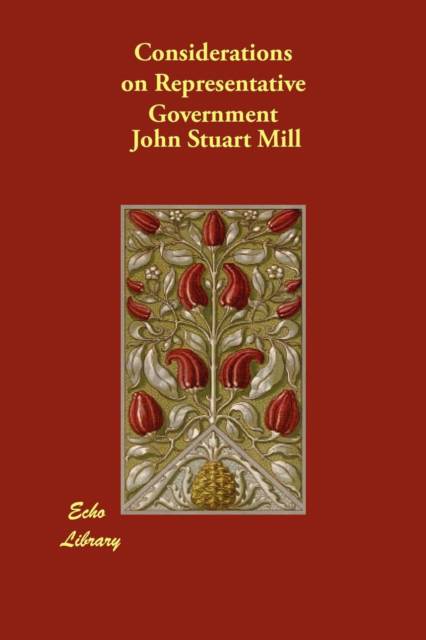
- Afhalen na 1 uur in een winkel met voorraad
- Gratis thuislevering in België vanaf € 30
- Ruim aanbod met 7 miljoen producten
- Afhalen na 1 uur in een winkel met voorraad
- Gratis thuislevering in België vanaf € 30
- Ruim aanbod met 7 miljoen producten
Zoeken
€ 13,95
+ 27 punten
Uitvoering
Omschrijving
John Stuart Mill (1806-73), usually cited as J S Mill, was an English philosopher, political economist, and civil servant. One of the most influential thinkers in the history of classical liberalism, he contributed widely to social theory, political theory, and political economy. His conception of liberty justified the freedom of the individual in opposition to unlimited state and social control. Mill was a member of the LIberal Party who became only the second MP to call for women's suffrage. He was the author of the early feminist work The Subjection of Women (1869), an essay setting forth ideas developed jointly with his wife Harriet Taylor Mill, also a philosopher and women's rights advocate. Among Mill's best-known works are A System of Logic (1843), Principles of Political Economy (1848), On Liberty (1859), and Utilitarianism (1863). In his Considerations on Represenative Government, published in 1861, he argues the case for what he sees as the ideal form of government. One of the more notable ideas Mill puts forth is that the business of government representatives is not to make legislation. Instead he suggests that representative bodies such as parliaments and senates are best suited to be places of public debate on the various opinions held by the population, and to act as watchdogs of the professionals who create and administrate laws and policy.
Specificaties
Betrokkenen
- Auteur(s):
- Uitgeverij:
Inhoud
- Aantal bladzijden:
- 180
- Taal:
- Engels
Eigenschappen
- Productcode (EAN):
- 9781406803617
- Verschijningsdatum:
- 18/12/2012
- Uitvoering:
- Paperback
- Formaat:
- Trade paperback (VS)
- Afmetingen:
- 152 mm x 229 mm
- Gewicht:
- 272 g

Alleen bij Standaard Boekhandel
+ 27 punten op je klantenkaart van Standaard Boekhandel
Beoordelingen
We publiceren alleen reviews die voldoen aan de voorwaarden voor reviews. Bekijk onze voorwaarden voor reviews.







